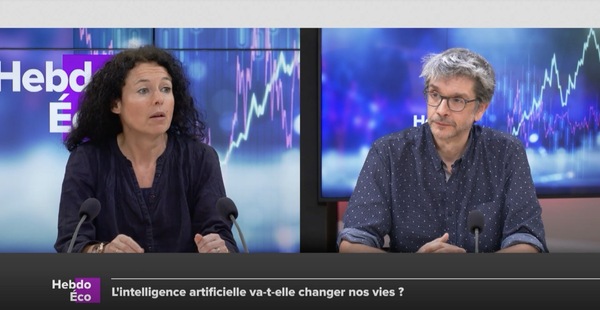
Last Wednesday, I had the opportunity to answer questions from Stéphanie Lacazze, from Sud Ouest, as part of Hebdo Éco on TV7. It’s a local TV channel belonging to the Sud Ouest group. It was a pleasure to see the depth of Ms. Lacazze’s questions and to engage in a discussion that flew by!
I mainly tried to explain that artificial intelligence is an old scientific field, much broader than what the general public perceives through tools like ChatGPT. Since the 1950s, AI has explored different approaches: replicating human intuition or structuring logical reasoning. But today, we mainly talk about generative AI. We shouldn’t be afraid to acknowledge this. In the public’s mind, AI is ChatGPT (or Mistral). This achievement, which wasn’t on anyone’s agenda ten years ago (BERT only arrived in 2018, the concept of “foundation models” only in 2021, …), was made possible by a real breakthrough in computing power, massive access to data, and technological advancements. This breakthrough appeared as a tipping point, resulting from continuous progress.
However, we are now rushing after innovation without always taking the time to measure its implications.
Many see dangers in AI, but the major threat (which has existed for years) does not come so much from generative models as from recommendation algorithms, which influence our behaviors and choices, including political ones. There is also a worrying gap between the scale of announced investments (in innovation) and the state of public research, which is severely underfunded.
But let’s be optimistic: far from replacing us, AI should help us better understand our own intelligence and refocus on what makes us human: social bonds, creativity, and learning about the world.
Even though this wasn’t discussed on-air (but was mentioned behind the scenes), we should quickly question AI’s benefits in relation to its environmental impact. ChatGPT alone was enough to throw all climate concerns out the window. A shift in political priorities. That’s a terrible mistake.
The replay (in French) can be found here




